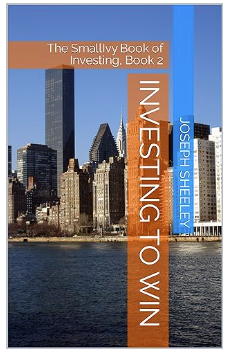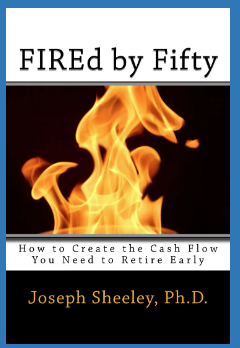
Photo by Chandri Anggara on Pexels.com
" data-orig-size="864,1300" sizes="(max-width: 864px) 100vw, 864px" data-image-title="woman and man sitting by computer at desk" data-orig-file="https://smallivy.files.wordpress.com/2024/03/pexels-photo-16270695.jpeg" data-image-description="" data-image-meta="{"aperture":"0","credit":"","camera":"","caption":"","created_timestamp":"0","copyright":"","focal_length":"0","iso":"0","shutter_speed":"0","title":"","orientation":"0"}" width="864" data-medium-file="https://smallivy.files.wordpress.com/2024/03/pexels-photo-16270695.jpeg?w=199" data-permalink="https://smallivy.com/2024/05/12/what-is-feudalism-are-you-living-like-a-serf/pexels-photo-16270695/" alt="" height="1300" srcset="https://smallivy.files.wordpress.com/2024/03/pexels-photo-16270695.jpeg 864w, https://smallivy.files.wordpress.com/2024/03/pexels-photo-16270695.jpeg?w=100&h;=150 100w, https://smallivy.files.wordpress.com/2024/03/pexels-photo-16270695.jpeg?w=199&h;=300 199w, https://smallivy.files.wordpress.com/2024/03/pexels-photo-16270695.jpeg?w=768&h;=1156 768w" class="wp-image-24172" data-large-file="https://smallivy.files.wordpress.com/2024/03/pexels-photo-16270695.jpeg?w=681" />Photo by Chandri Anggara on Pexels.comFeudalism
When we think of feudalism, we often think of King Author or knights in armor, but feudalism is actually an economic system. Yes, a feudal system normally has kings and princes and such, but the foundation of it is actually who has control over land. It is a perfectly viable economic system, and one that those in the World Economic Forum would like to drive the whole world to, but it is a terrible system if you care about freedom and the ability to build wealth because it severely limits those who are able to do this. Today we’ll discuss what feudalism is, look at whether you’re living the life of a serf, and explain how to go from being a serf to being a lord.
(Note, this site contains affiliate links. As an Amazon Associate I earn from qualifying purchases. When you click on an affiliate link and buy something, The Small Investor will get a small commission for the referral. You are charged nothing extra for the purchase. This helps keep The Small Investor going and free. I don’t recommend any products I do not fully support. If you would like to help but don’t see anything you need, feel free to visit Amazon through this link and buy whatever you wish. The Small Investor will get a small commission when you do, again at no cost to you.)
What is Feudalism?
Feudalism is an economic system where an overall ruler is appointed, normally a king or queen. That ruler has ownership over all of the land and the property, and in exchange provides protection, creates and enforces laws, and regulates all industries and activities. Because a single person couldn’t manage all of this alone, he gives out portions of the land to people he chooses (lords and other “nobles”) for them to manage, who in turn appoint people under them, until eventually small tracts of land are managed by low-level rulers who allow individuals to live on and work the land in exchange for a portion of what is produced. Each person in this chain pays a portion of what he/she receives to those above them in exchange for use of the land and services such as security. The king (or queen), being at the top of the pyramid, receives the most resources.
Want to learn the secrets to investing and really turbocharge your returns? Check out the second book in The Small Investor series, Investing to Win. This book presents 40 years of investing experience. Someone starting with zero knowledge of investing and the stock market could take this book and learn all that they needed to invest and do well. It would also be useful to someone who has invested and traded stocks for a while but who is really not getting the kind of returns desired.

Investing to Win
The king, through helpers he appoints, hires people to provide basic security and enforce laws (guards). To fight wars and provide security against foreign foes, the king has the ability to request each lord provide a certain number of conscripts for the military when needed. Agreeing to provide these individuals is part of the arrangement made when being given the land to use.
Because the king realizes he is but one person who could be easily overthrown if a few people decided they wanted to do so, he requires elaborate loyalty oaths from those he appoints to be lords and other officials, who in turn require loyalty to themselves and to the king from those below them, all the way down the line. This, combined with large penalties such as death for even speaking about overthrowing the system, keep people in line.
Before you can start investing, you need money to invest. Check out FIREd by Fifty: How to Create the Cash Flow You Need to Retire Early. You’ll learn how to control your cash flow so that you’ll have money to invest and grow wealth.

Are you a serf?
A serf is the lowest person in a feudal system. The serf works the land and provides a share of his harvest to the local lord/master and on up the line to the king. The serf or his sons will be the soldiers in any wars that occur, right there on the front lines to do the actual hand-to-hand combat. As long as the king does not run out of serfs before the other side does, the king considers any war a success. The harvest share that the serf provides is given out by the lords and the king to other people in the kingdom (blacksmiths, carpenters, seamstresses, lawyers, …) in exchange for their services. Some is also given to the guards who keep the serf in line and collect the taxes. The guards see this as a pretty good gig, compared to the life of the serf, and therefore are willing to do some pretty awful things to the serfs if ordered to do so to make sure they keep their gig and to avoid being on the other side of a guard’s boot.
The system is designed such that no matter how hard the serf works, he can never pull himself out. This is because he cannot own any property or have anything permanent from his labor. He can grow more grain and perhaps eat well for a season, but at the next year he’s back where he was, toiling each day to have enough to eat and a roof over his head. The lord could come in at any time and kick him off of his land, leaving anything he built there, and make his destitute.
Many people live the life of a serf. They work a job, but everything they make from the job is spent on necessities like food, rent, medical care, etc… Some make enough to afford some luxuries like a nicer home, a boat, tickets to football games and concerts, or travel, but if they were to lose their jobs it would all go away. But this isn’t serfdom pressed upon them like those in a feudal society. It is usually due largely to their choices in how they spend their time and handle their cash flow. The whole goal of my book, FIREd by Fifty, is to show people how to use their cashflow to break out of this cycle and stop being a serf.
If the following are true, you’re living the life of a serf (or, at best, one of the townspeople in a feudal society):
- You own nothing really. All of your possessions are consumed instantly, have no resale value, or would be taken away from you if you stopped payments on them.
- You have no real assets, things that provide you with income in addition to your job each year.
(If you’d like to learn more about how to decide how much you should put in different types of assets, Sample Mutual Fund Portfolios gives lots of information and examples of how to make allocations for all sorts of different goals, including retirement.)

How to stop being a serf.
Luckily, most people have the ability to stop being a serf. The secret is to start buying things that are permanent and accumulating assets. The serf in the feudal society could not buy land because that was how the lords kept them working for them and providing them with a share of the harvest. You can buy land, and shares of stock, and real-estate to live in or rent out. You can start a company and have people work for you and collect a share of what they produce, living like a lord instead of a serf.
The secret is to manage your cashflow so that you have money left over to buy assets. This can be done my increasing your income by getting better jobs, improving your skills, and working your way up. It can also be done by cutting back on your expenses until you have money left over to invest. This is called your free cash flow, and the bigger that number is, the faster you can leave serfdom. Doing a combination of both is the fastest way to reach financial freedom.
And it gets better. As you acquire some assets, things like shares of stock or rental real-estate, the assets start contributing to your income. This means you have more money coming in. If you avoid the temptation to just increase your spending, you can direct this additional income back to buying more assets, creating a feedback loop. It starts slowly, but it is amazing what happens when you get the free cashflow feedback loop going.

So, what’s stopping you? Pull together a budget and see where you can make some easy cuts and find free cashflow to start investing. Doing things like bringing in lunch and eating out less are easy targets many people can use. Look at your job and see if there are ways you can improve your skills and make your way up. Maybe you could also work a few extra hours for some extra pay. If needed, see if there are other job opportunities beyond your company that would let you increase your income and your cashflow. Also, see if there are some side gigs you could take on to boost your income. It’s all about free cashflow and investing the excess.
Follow me on X to get news about new articles and find out what I’m investing in. @SmalllIvy
Disclaimer: This blog is not meant to give financial planning or tax advice. It gives general information on investment strategy, picking stocks, and generally managing money to build wealth. It is not a solicitation to buy or sell stocks or any security. Financial planning advice should be sought from a certified financial planner, which the author is not. Tax advice should be sought from a CPA. All investments involve risk and the reader as urged to consider risks carefully and seek the advice of experts if needed before investing.
